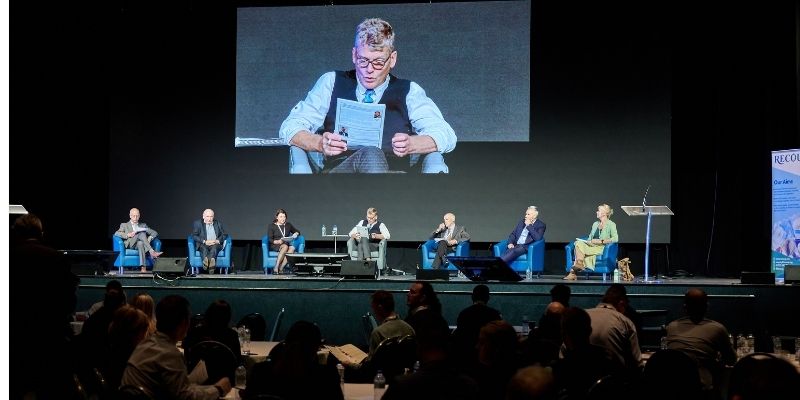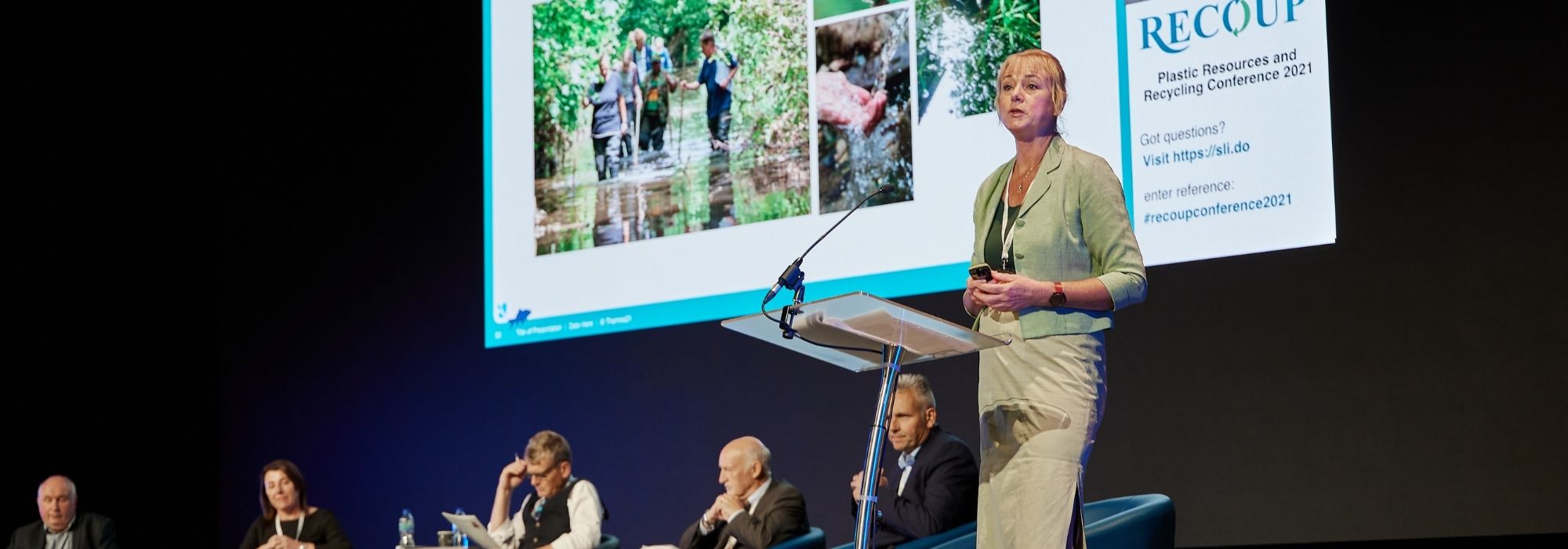Thames21 participates in RECOUP’s 2021 plastics recycling and resources conference
Recycling charity RECOUP recently organised its 2021 conference around the theme ‘plastics resources and recycling’. Our CEO Debbie Leach was invited to participate in this event and was delighted to introduce the 400-strong audience to the Plastics Free Mersey project. Debbie highlighted the positive changes that Thames21 has enabled in its 27-year history through programmes such as Thames River Watch. She also stressed how more and more people now appreciate the value of our waterways and rivers in London.
Our work and that of many other organisations has helped increase public awareness, with countless litter picks taking place in and around waterways worldwide. Through Plastic Free Mersey, we are bringing together businesses across the plastics value chain, NGOs, communities, and academics to tackle the issue of plastic pollution in the natural environment via citizen science and public and stakeholder engagement. There is more. We can announce that, thanks to RECOUP CEO Stuart Foster and Plastic Europe’s Adrian Whyle, Thames21 has become an affiliate member of RECOUP. The charity’s mission is “to explain to people how easy it is to recycle plastic containers, so they never become a blight on the natural environment”.
Here, Project Coordinator Luca Marazzi gives us the key facts and highlights from the event, which he attended online.
Industry
The global production of plastics might increase from 300 million tonnes to more than1 billion tonnes by 2050. Across their lifecycle, plastics account for 3.8% of global greenhouse gas emissions, higher emissions than the fifth-highest emitter country in the world. To produce the plastic products, various phases are required: refining, cracking, production of monomers and then polymers, conversion, packaging, transport. Therefore, every tonne of plastics recycled means saving approximately 2.5 tonnes of the CO2 emitted in the production of plastics. However, without plastics, the planet’s atmosphere would have arguably been even warmer than it is now; plastics are often more durable and lighter materials that are used as components in the aviation and road vehicle sectors. Recycling plastics is important, but not easy, and production efficiency and product quality often decreases after recycling.
There are two main ways to recycle plastics. Mechanical recycling (i.e., collecting plastic debris, washing, melting and transforming the waste into raw material for a new productive process of plastic transformation) is a technology that currently causes lower CO2 emissions than chemical recycling (i.e., technologies to recycle plastics that are difficult or uneconomic to recycle mechanically by turning them back into base chemicals and chemical feedstocks)saved. In future, the two types of approaches might become more complementary and beneficial as innovation proceeds.

Consumers
Campaign groups and NGOs often refer to turning off the tap of plastics production and slowing the flow whilst preserving the benefits of the most necessary and useful plastics might be a better phrase, as other materials may and do have bigger environmental impacts, e.g. in terms of CO2 emissions through transport. According to a finance expert, 20% of people will change their behaviour, 60% might be persuaded to do so and 20% will “unlikely” change their behaviour (20-60-20 model). However, carrot-stick incentives/deterrents might change these proportions. Refill systems are promising, but not widespread and people’s take up is still low, linked to inconvenience and habits (people need to remember not just their reusable bags but specific containers on their way to grocery shopping); it will take time for social norms to change. The collection of household waste from the kerbside and of on-the-go litter are two complementary challenges; moreover, flexible plastic packaging and multi-layered plastics pose even more challenges than rigid plastic packaging because films and food wrappers are much more difficult to recycle than, say, bottles. Some of the plastics industry conference participants suggested that a ‘pay as you throw’ system would support better waste disposal by consumers/people because disposing waste would become a ‘metered’ activity, just like using energy or water.
To read Luca’s full analysis, please click link below.
Thames21 participates in RECOUP’s 2021 plastics recycling and resources conference
